Keynote Speakers
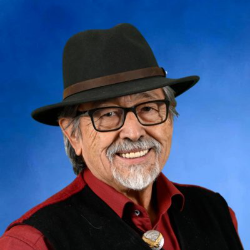
Commisioner Ronald E. Ignace
Commissioner of Indigenous Languages
Stsmél̓qen, Ronald E. Ignace, is a member of the Secwépemc Nation in Interior British Columbia and Canada’s first-ever Indigenous Languages Commissioner. He was the elected chief of the Skeetchestn Indian Band for more than 30 years since the early 1980s. He also served as Chairman of the Shuswap Nation Tribal Council and president of its cultural society, where he initiated a broad program of research and reclamation on Secwépemc language and culture, including an innovative university partnership with Simon Fraser University (SFU).
He holds a B.A. and M.A. in Sociology from the University of British Columbia, and completed his PhD in Anthropology at SFU in 2008, with a dissertation on Secwépemc oral history. He has (co-)written numerous articles and book chapters on Secwépemc history, ethnobotany, language and culture, including the epic Secwépemc People, Land and Laws: Yerí7 re stsq̓ey̓s-kucw, a journey through 10,000 years of Secwépemc history.
From 2003-2005, he chaired the Ministerial Task Force on Aboriginal Languages and Cultures, and from 2016-2021, co-chaired the Assembly of First Nations’ Chiefs Committee on Languages, where he played an instrumental role in the development and passing of the Indigenous Languages Act, 2019.
Raised by his great-grandparents Sulyen and Edward Eneas, and despite being taken to Kamloops Indian Residential School for several years in his childhood, Ron is a fluent speaker of Secwepemctsín and has more than sixty years of practical experience in Secwépemc traditional skills on the land. With his wife Dr. Marianne Ignace, Ron was awarded the Governor General‘s Award for Innovation in 2019, for their decades of collaborative research involving Indigenous people and communities. He is also the first recipient of the 2024 Indspire Award specific to Language, which recognizes his decades-long leadership in the revitalization of Indigenous languages.
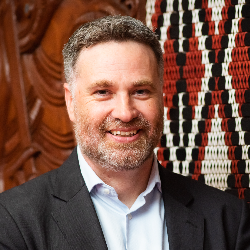
Prof. Carwyn Jones
Head Lecturer, Māori Laws and Philosophy programme, FRSNZ
Te Wānanga o Raukawa
Dr Carwyn Jones FRSNZ is from the Māori iwi (nation/people), Ngāti Kahungunu. He is the lead academic in the Māori Laws and Philosophy programme at Te Wānanga o Raukawa, a Māori tertiary education institute north of Wellington. He completed his PhD at the University of Victoria, British Columbia and he is a former President of the Māori Law Society. Prior to joining the Wānanga, Carwyn was an Associate Professor in the Faculty of Law at Victoria University of Wellington and he has worked in various roles at the Māori Land Court, Waitangi Tribunal, and Office of Treaty Settlements. He also served as a negotiator for his own community in the settlement of their historical claims against the Crown. His primary research interests relate to the Treaty of Waitangi, rights of Indigenous peoples, and Indigenous legal traditions, and he has published numerous articles on these topics.
Moderators
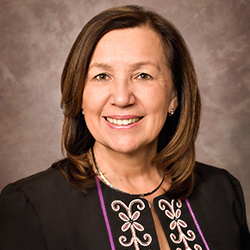
Prof. Marie Battiste
Senior Mi'kmaw Professor Emeritus
University of Saskatchewan
Dr. Marie Battiste is a citizen of the Mi’kmaq Nation, a member of the Potlotek First Nation and the Aroostook Band of Micmacs in Maine. She is Professor Emerita from the University of Saskatchewan, with graduate degrees from Harvard and Stanford Universities in education, and she has earned five honorary degrees from international universities. She has published widely in Indigenous eduction and decolonization, and protection of Indigenous knowledge in books, chapters, journal essays, and technical reports. She is an elected Fellow to the Royal Society of Canada, an officer of the Order of Canada, holds awards from the National Aboriginal Achievement (now INDspire) Award; Distinguished Academic Award from the Canadian Association of University Teachers; Saskatchewan Centennial Medal for significant contributions to the people of Saskatchewan; Alumni Achievement Award, University of Maine; 50th Year Queen's Award for Service to the Community, the Queen’s 75th Jubilee Award for Service to Saskatchewan, and multiple honouring feathers and blankets from First Nations communities and organizations.
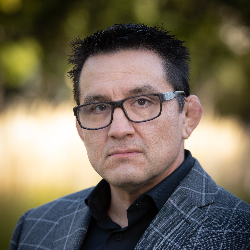
Prof. Frank Deer
President of the RSC College
Royal Society of Canada
Frank Deer is Professor, Canada Research Chair, and Associate Dean in the Faculty of Education of the University of Manitoba in Winnipeg, Manitoba. Frank is Kanienkeha’ka from Kahnawake, a community that lies just south of Tiotia’ke in the eastern region of the Haudenosaunee Confederacy. Frank earned a PhD in Educational Administration from the University of Saskatchewan. Frank has previously served as a classroom teacher in Northern Manitoba and in the city of Winnipeg.
Frank studies Indigenous education and Indigenous religious and spiritual orientations. Frank is working with the College and the Royal Society of Canada on initiatives associated with Indigenous engagement and inclusive excellence.
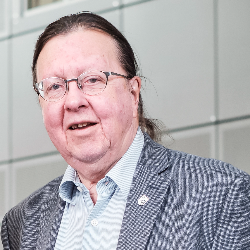
Prof. Malcolm King
Scientific Director, FRSC
Saskatchewan Centre for Patient Oriented Research, University of Saskatchewan
Professor Malcolm King is a citizen of the Mississaugas of the Credit First Nation (Ontario) and a health researcher at the University of Saskatchewan. Prof. King served as Scientific Director of the CIHR Institute of Aboriginal Peoples’ Health from 2009 to 2016, and is currently the Scientific Director of the Saskatchewan Centre for Patient-Oriented Research. His research is aimed at improving wellness and achieving health equity for First Nations, Métis and Inuit through strengths-based approaches that respect self-determination and privilege Indigenous ways of knowing. Honoured with a National Aboriginal Achievement Award in 1999, he was elected a Fellow of the Canadian Academy of Health Sciences in 2016 and a Fellow of the Royal Society of Canada in 2021.
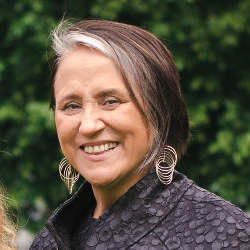
Deanna Reder
Professor, Departments of Indigenous Studies and English
Simon Fraser University
Deanna Reder (Cree-Metis) is a Professor in the Departments of Indigenous Studies and English at Simon Fraser University. A founding member of the Indigenous Literary Studies Association (ILSA), established in 2013, and the Indigenous Editing Association (IEA), established in 2019, she has served as co-Chair of the Indigenous Voices Awards from 2018-2024. She has co-edited four anthologies, including Learn, Teach, Challenge: Approaching Indigenous Literatures (2016) and Read, Listen, Tell: Indigenous Stories from Turtle Island (2017). Her 2022 monograph, Autobiography as Indigenous Intellectual Tradition: Cree and Métis âcimisowina, received the 2023 ACQL Gabrielle Roy Prize. Also, she is co-author of Cold Case North: the Search for James Brady and Absolom Halkett (2020). She and her research team have created an on-line database of Indigenous writing in lands claimed by Canada, available at www.thepeopleandthetext.ca. Reder was inducted into the College of New Scholars, as part of the Royal Society of Canada, 2018-2024.
Panelists
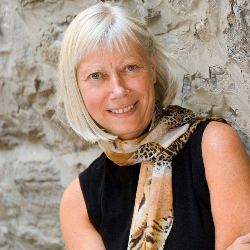
Constance Backhouse
Professor of Law, FRSC
University of Ottawa
Constance Backhouse is a Distinguished University Professor of Law at the University of Ottawa. She was named to the Order of Canada in 2008 and the Order of Ontario in 2010. A Fellow of the Royal Society of Canada since 2004, she served as President of its Academy of Social Sciences from 2015 to 2017. She has received five honorary degrees. She has published a number of prize-winning books: Petticoats & Prejudice: Women and Law in Nineteenth-Century Canada; Colour-Coded: A Legal History of Racism in Canada, 1900-1950; Carnal Crimes: Sexual Assault Law in Canada, 1900-1975; Claire L’Heureux-Dubé: A Life; Two Firsts: Bertha Wilson and Claire L’Heureux-Dubé at the Supreme Court of Canada; Reckoning with Racism: Police, Judges, and the RDS Case. With Margaret Kovach, Cynthia E. Milton, and Adele Perry, she co-edited Royally Wronged: The Royal Society of Canada and the Marginalization of Indigenous Knowledge (Montreal: McGill Queen’s University Press, 2021).
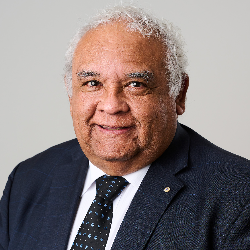
Tom Calma
Professor, AO FAA FASSA FAHA
University of Sydney, AO FAA FASSA FAHA
Tom Calma is an Aboriginal Elder from the Kungarakan tribal group and a member of the Iwaidja and Woolwonga tribal groups. He has been Chancellor of the University of Canberra since 2014 and was the first Aboriginal or Torres Strait Islander man to hold the position of Chancellor at any Australian university.
For over four decades, he has worked at local, community, state and international levels, championing the improvement and advancement of the rights and welfare of Aboriginal and Torres Strait Islander peoples through health, justice, education and employment.
He was appointed an Officer of the Order of Australia in 2012. He was also named ACT Australian of the Year in 2013 and ACT and National Senior Australian of the Year in 2023, in recognition of his human rights and social justice advocacy.
Professor Calma is Co-Chair of Reconciliation Australia and has a professorial role at the University of Sydney. His research interests include pharmacological applications for scabies control, genomics, Indigenous cancers and tobacco control, mental health and suicide prevention.
He was elected a Fellow of the Australian Academy of Science in 2022.
His work has had an enduring impact on public discourse in Australia and continues to facilitate and promote evidence-informed conversation around the Voice and Traditional Knowledges within the Academy and beyond.
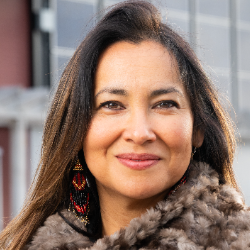
Gä̀gala-ƛ̓iƛ̓ətko Nadia Joe
Associate Vice-President, Indigenous Engagement and Partnerships (AVP-IE&P)
Yukon University
Gä̀gala-ƛ̓iƛ̓ətko (NadiaJoe), is amember of the Crow Clan from the Champagne & Aishihik First Nations. She has spent the past 14+ years working as an environmental professional and supportingIndigenous communities across Canada advancing their rights and interests in water security. Gä̀gala has dedicated her professional career to applying respectful and practical ways to protect Indigenous knowledges and heritage. As a child of the Yukon land claims movement, she was raised by a river and loved into leadership by the many elders, leaders, mentors of the nłe?kepmx and southern Tutchone-Tlingit peoples. She recently returned home to join Yukon University as their new Associate Vice-President, Reconciliation and UArctic as Vice-President, Indigenous.
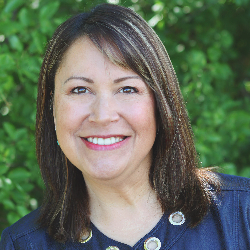
Margaret Kovach
Professor in the Department of Educational Studies
University of British Columbia
Margaret Kovach is an Indigenous scholar ofNêhiyaw and Saulteaux ancestry from Treaty Four, Saskatchewan. She is currently a Professor in the Department of Educational Studies at the University of British Columbia, Vancouver Campus. Her scholarly interests include Indigenous research methodologies, higher education approaches to Indigenous education, and social justice education. Her research seeks to explore ways in which Canadian universities can cultivate environments that enhance the experience for Indigenous scholars and graduate students.Among numerous publications in Indigenous research methodologies and Indigenous post-secondary education, she isthe author of the bookIndigenous Methodologies:Characteristics, Conversations, and Contextsthrough the University of Toronto Press now in its 2ndedition and co-editor of the anthology Royally Wronged:The Royal Society of Canada and Indigenous Peoplesthrough McGill-Queen’s University Press. As a post-secondary scholar, her teaching, research, and writing is compelled by a particular interest in how members of university communities might work, learn, and live at the intersectionality of diversity in service of peaceful, compassionate, and socially just relations.
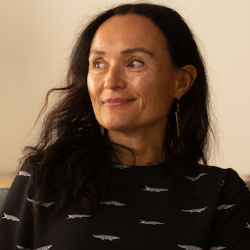
Prof. Tahu Kukutai
Co-Director and Professor, FRSNZ
Ngā Pae o te Māramatanga and University of Waikato
Tahu Kukutai FRSNZ (Ngāti Tiipa, Ngāti Māhanga, Ngāti Kinohaku, Te Aupōuri) is Co-Director of Ngā Pae o te Māramatanga, Aotearoa’s only Māori Centre of Research Excellence, and Professor of Demography at The University of Waikato. Tahu specialises in Māori and Indigenous demographic research and data sovereignty. She has undertaken research for numerous tribes, Māori communities, and Government agencies, and provided strategic advice across a range of sectors. Tahu is a founding member of both the Māori Data Sovereignty Network Te Mana Raraunga and the Global Indigenous Data Alliance, and is a founding Trustee of Pūhoro STEMM Academy. Recent books include Indigenous data sovereignty: Toward an agenda (ANU Press), Indigenous data sovereignty and policy (Routledge), and The Oxford handbook of Indigenous sociology (Oxford University Press).
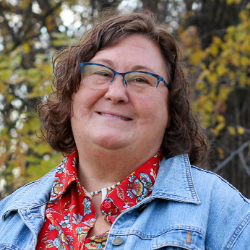
Kiera Ladner
Distinguished Professor and Canada Research Chair, FRSC
University of Manitoba
Kiera L. Ladneris a Distinguished Professor in Political Studies and Women’s and Gender Studies, and the Canada Research Chair inMiyo we’citowin, Indigenous Governance, and Digital Sovereignties at the University of Manitoba. Her current research focuses on comparative Indigenous constitutional law and politics, digital sovereignties, MMIWG and treaty federalism.
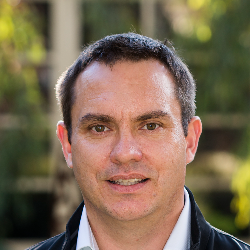
Ray Lovett
Associate Director and Professor,
Yardhura Walani, ANU and Director, Mayi Kuwayu
Prof. Ray Lovett (Ngiyampaa/Wongaibon) is a Social Epidemiologist and the Associate Director of the Yardhura Walani Centre: The national centre for Aboriginal and Torres Strait Islander wellbeing research at the Australian National University. Improving Aboriginal and Torres Strait Islander health and wellbeing has been the purpose of Ray Lovett’s work and research for over two decades. He is the Director of Mayi Kuwayu: The national study of Aboriginal and Torres Strait Islander wellbeing that follows thousands of Aboriginal and Torres Strait Islander people to examine how culture is linked to improved health and how the processes of settler-colonisation harm health and wellbeing. Ray is a founding member of the Maiam nayri Wingara Indigenous Data Sovereignty Collective in Australia and the Global Indigenous Data Alliance. Ray dedicates substantial time to the development of other Indigenous academics in Australia, particularly in the data development and quantitative data science fields.
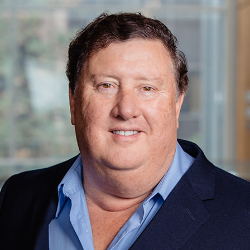
Rod McCormick
Professor
Thompson Rivers University
Rod McCormick is Haudenosaunee (Kanienkehaka). He is a full professor, research centre Director, and BC Research chair in Indigenous health. His research has attracted 60 million for Indigenous mental health and research capacity building. Dr. McCormick is a provincial, national, and international consultant in Indigenous mental health. Professor McCormick will be named a fellow in the Royal Society of Canada in the 2024 cohort.
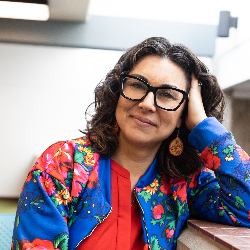
Onowa McIvore
Professor, Department of Indigenous Education
University of Victoria
Dr. Onowa (said Oh-NOW-ah) McIvor ismaskékow-ininiw (Swampy Cree) and Scottish-Canadian from Treaty 5 territory and grew up in Treaty 6 territory (northern Saskatchewan). Her Cree family is from kinosao sipi (Norway House) and Pimicikamak (Cross Lake) Cree Nations in northern Manitoba. Onowa is a grateful visitor on unceded SENĆOŦEN and Lekwungen speaking territories where she is raising her daughters, together with extended family. She is a lifelong learner of nehinawewin/nehiyawewin/nehithawewin (learning across three dialects).Dr. McIvor is a Professor in the Department of Indigenous Education and holds a 5-year President’s Research Chair at the University of Victoria while leading theNEȾOLṈEW̱Research Partnership Grant, a seven-year $2.5mil SSHRC Partnership grant working to understand and enhance Indigenous contributions to reviving Indigenous languages in Canada.
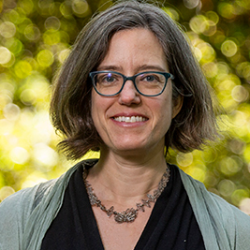
Cynthia Milton
Professor of History, FRSC
University of Victoria
Dr. Cynthia Milton is a Professor of History at the University of Victoria (since 2020), Fellow of the Royal Society of Canada (2022), former Fellow of the Pierre Elliott Trudeau Foundation (2019), and former Canada Research Chair in the History Department at the Université de Montréal. Her interdisciplinary research studies alternative modes of historical representations of political violence and the legacies of inequalities and colonialism. Her most recent publications include Royally Wronged: The Royal Society of Canada and the Marginalization of Indigenous Knowledge, with Constance Backhouse, Adele Perry and Margaret Kovach (McGill-Queen’s University Press, 2021), How the Military Remembers: Human Rights and Countermemories in Latin America (Univ. of Wisconsin Press, forthcoming), and Conflicted Memory: Military Cultural Interventions and the Human Rights Era in Peru (University of Wisconsin Press, 2018).
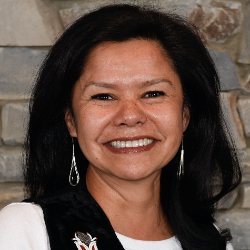
Jacqueline Ottmann
President
First Nations University of Canada
Dr. Jacqueline Ottmann, whose traditional name is mizowaykomiguk paypomwayotung, meaning "thunder that can be felt over a large landscape," is an esteemed leader, scholar, and advocate for Indigenous education and leadership. Anishinaabe (Saulteaux) from Fishing Lake First Nation in Treaty Four, Saskatchewan, she was profoundly influenced by her culture and the values of her community. These early influences shaped her lifelong commitment to education and social justice.
She has had a distinguished career in academia, characterized by her commitment to promoting Indigenous knowledges and leadership within educational systems, and has held several influential positions that highlight her dedication to these goals.
1. Vice-Provost Indigenous Engagement at the University of Saskatchewan: In this inaugural role, Dr. Ottmann was pivotal in fostering a more inclusive and supportive environment for Indigenous students and staff. She integrated Indigenous perspectives into the university’s strategic initiatives, advancing policies and practices that support Indigenous education.
2. President of First Nations University of Canada: In 2021, Dr. Ottmann became the President of First Nations University of Canada, the only national Indigenous university in Canada. In this role, she continues to be a purpose-driven leader dedicated to serving Indigenous education.
3. Founder of Thrivance: Dr. Ottmann is the founder of "Thrivance: Journal of Indigenous Ways of Being, Knowing, and Doing," a platform that showcases Indigenous methodologies and pedagogies.
Dr. Jacqueline Ottmann's legacy is one of transformative leadership and unwavering commitment to Indigenous education. Her work has paved the way for future generations of Indigenous scholars and leaders, extending her impact across educational institutions and communities. Her vision for the future includes educational systems that are inclusive, equitable, and reflective of Indigenous knowledges and perspectives, ensuring that Indigenous students can thrive and succeed.
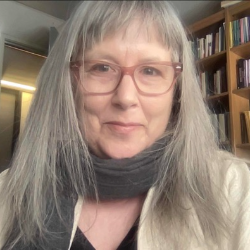
Adele Perry
Distinguished Professor; Director, Centre for Human Rights Research, FRSC
University of Manitoba
Dr. Adele Perry is a historian of Canada, colonialism, Indigenous-settler relations, and gender. Dr. Perry was raised in a settler family in British Columbia. She completed her Ph.D. in History from York University and joined the University of Manitoba in 2000. She is currently Distinguished Professor in History and Women’s and Gender Studies, Senior Fellow at St. John’s College, and, since 2020, Director of the Centre for Human Rights Research.
Her research focuses on three overlapping areas: histories of colonialism with a focus on the nineteenth-century, western Canada, and comparative perspectives, Indigenous-settler relations, and histories of women and gender from an intersectional perspective. Her monographs include On the Edge of Empire: Gender, Race, and the Making of British Columbia, 1849-1871 (2001), Colonial Relations: The Douglas Connolly Family and the Nineteenth-Century Imperial World (2015), and Aqueduct: Resources, Colonialism, and the Histories We Remember (2016). Perry is a co-editor of Royally Wronged: The Royal Society of Canada and Indigenous People (2021) and four editions of Rethinking Canada: The Promise of Women’s History. Perry held two terms of a Tier II Canada Research Chair. She was named a fellow of the Royal Society of Canada in 2017 and has spoken in Japan, Australia, New Zealand, Scotland, and across North America. Perry was President of the Canadian Historical Association (CHA) from 2017-19.
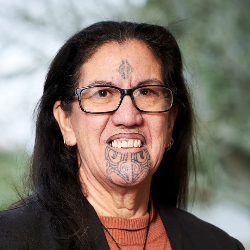
Prof. Leonie Pihama
Professor, FRSNZ
Tū Tama Wāhine o Taranaki
Leonie Pihama (Te Ātawa, Waikato, Taranaki) is a preeminent scholar of kaupapa Māori and mana wahine. Her body of work encompasses three decades of intentional research in the areas of kaupapa Māori, mana wahine, inter-generational trauma, healing and whānau well-being. She has been an important figure in establishing these areas as legitimate and exciting ways to pursue knowledge and to include kaupapa Māori and mātauranga Māori in the wider research arena. She has been an outstanding voice for drawing on te reo Māori, tikanga and mātauranga Māori as a source of theories, methodologies, inspiration and solutions. Her theoretical work on kaupapa Māori has helped lay the foundations for what has become a vibrant Māori approach to research across many disciplines and fields. Her body of work on inter-generational trauma and healing has stretched from exploring healing strategies, definitions and framing of issues such as sexual violence and strategies for whānau well-being. Pihama has a strong community focus in her research with collaborations with Māori social service providers and her impact is in their application of her research, the capacity of which she has developed and mentored. Leonie has directed a number of research institutes including the International Research Institute for Māori and Indigenous Education (IRI, University of Auckland) and Te Matapunenga o Te Kotahi (Te Kotahi Research Institute, University of Waikato).
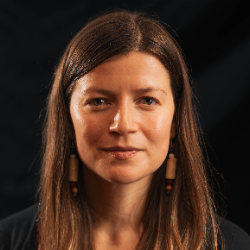
Andrea Reid
Assistant Professor & Principal Investigator
The Centre for Indigenous Fisheries, University of British Columbia
Dr. Andrea Reid is a Nisg̱a’a citizen and scientist engaged in community-partnered work on fish and fisheries, critically examining their pasts and envisioning just futures. Her research and teaching, based out of the Nass River Valley, centre approaches that are intergenerational, land-based, and relational. Dr. Reid is a Canada Research Chair in Indigenous Fisheries Science, leading the Centre for Indigenous Fisheries at The University of British Columbia.
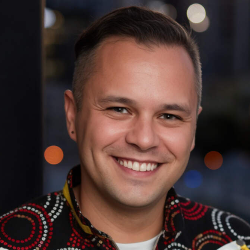
Prof. Jaris Swidrovich
Assistant Professor and Indigenous Engagement Lead
University of Toronto
Dr. Jaris Swidrovich (he/they) is an Assistant Professor and Indigenous Engagement Lead in the Leslie Dan Faculty of Pharmacy at the University of Toronto and is the founder and chair of the Indigenous Pharmacy Professionals of Canada. He is a queer, Two Spirit, Saulteaux and Ukrainian pharmacist from Yellow Quill First Nation.
He received a Bachelor of Science in Pharmacy from the University of Saskatchewan, a post-baccalaureate Doctor of Pharmacy from the University of Toronto, and a PhD in education from the University of Saskatchewan. His primary areas of research and practice include pain, HIV/AIDS, substance use disorders, 2SLGBTQ+ health, and Indigenous health.
Dr. Swidrovich is the first and only Indigenous faculty member in pharmacy in North America and has been recognized with several awards and honours, including the Queen Elizabeth II Platinum Jubilee Medal for service to the community and the National Patient Care Achievement Award from the Canadian Pharmacists Association.
Speakers
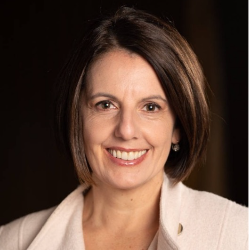
Anna-Maria Arabia
Chief Executive
Australian Academy of Science
Anna-Maria is Chief Executive at the Australian Academy of Science, an independent organisation of distinguished Australian scientists, championing science for the benefit of all. Starting her career as a neuroscientist, Anna-Maria has worked nationally and globally in scientific research, policy development, politics, and advocacy. Her leadership has led to significant reform at the science-policy interface. She has established novel mechanisms to facilitate evidence-informed decision making in parliaments and the justice system; spearheaded new approaches to science communication; and implemented global initiatives to make visible underrepresented scientists. She provides policy advice to the highest levels of government in Australia and contributes to global policy fora, most recently leading the establishment of the International Science Council Regional Focal Point for Asia and the Pacific. Anna-Maria has earnt the Knight of the Order of the Star of Italy for her constant commitment to promoting the role of science in society and her determination in enabling young and diverse people to access science. Anna-Maria is routinely called upon to serve as an agent of change.

Paul Atkins
Chief Executive
Royal Society of New Zealand Te Apārangi

Tom Calma
Professor, AO FAA FASSA FAHA
University of Sydney, AO FAA FASSA FAHA
Tom Calma is an Aboriginal Elder from the Kungarakan tribal group and a member of the Iwaidja and Woolwonga tribal groups. He has been Chancellor of the University of Canberra since 2014 and was the first Aboriginal or Torres Strait Islander man to hold the position of Chancellor at any Australian university.
For over four decades, he has worked at local, community, state and international levels, championing the improvement and advancement of the rights and welfare of Aboriginal and Torres Strait Islander peoples through health, justice, education and employment.
He was appointed an Officer of the Order of Australia in 2012. He was also named ACT Australian of the Year in 2013 and ACT and National Senior Australian of the Year in 2023, in recognition of his human rights and social justice advocacy.
Professor Calma is Co-Chair of Reconciliation Australia and has a professorial role at the University of Sydney. His research interests include pharmacological applications for scabies control, genomics, Indigenous cancers and tobacco control, mental health and suicide prevention.
He was elected a Fellow of the Australian Academy of Science in 2022.
His work has had an enduring impact on public discourse in Australia and continues to facilitate and promote evidence-informed conversation around the Voice and Traditional Knowledges within the Academy and beyond.

Prof. Frank Deer
President of the RSC College
Royal Society of Canada
Frank Deer is Professor, Canada Research Chair, and Associate Dean in the Faculty of Education of the University of Manitoba in Winnipeg, Manitoba. Frank is Kanienkeha’ka from Kahnawake, a community that lies just south of Tiotia’ke in the eastern region of the Haudenosaunee Confederacy. Frank earned a PhD in Educational Administration from the University of Saskatchewan. Frank has previously served as a classroom teacher in Northern Manitoba and in the city of Winnipeg.
Frank studies Indigenous education and Indigenous religious and spiritual orientations. Frank is working with the College and the Royal Society of Canada on initiatives associated with Indigenous engagement and inclusive excellence.
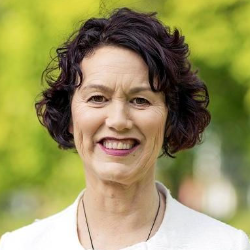
Gail Gillon
Founding Director
Child Well-being Research Institute, University of Canterbury
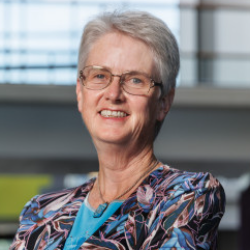
Jane Harding
President, FRSNZ
Royal Society of New Zealand Te Apārangi
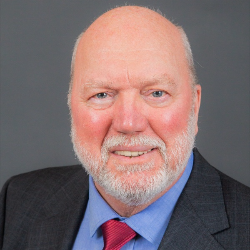
Paul Young
International Secretary
Royal Society of Canada
Professor Young, International (Foreign) Secretary/Chair, International Committee, W. M. Keck Chair Emeritus and formerly Vice-President Research and Innovation, University of Toronto. He is an engineering geophysicist who has focused his research and engineering career on developing seismic methods and instrumentation to monitor fractures and rock quality. Over the past 40 years, he has pioneered techniques for monitoring and interpreting induced seismicity in the mining, petroleum and nuclear waste disposal industries. Through his research groups at Queen's University and the University of Toronto, Canada, Keele University and Liverpool University, UK, as well as through spin off companies in Canada and the UK innovative scientific advances have been made in applied seismology and rock mechanics. He has published over 250 scientific papers in refereed journals and conference proceedings and successfully supervised over 45 Ph.D. students and post-doctoral research fellows. He has provided leadership as Vice-President, Research and Innovation, Chair of the Department of Civil Engineering and Director of the Lassonde Institute for Mining at the University of Toronto. He has also held the Chair of Earth Science at the University of Liverpool and has been President of the British Geophysical Association. He has chaired national boards including TRIUMF and Canada’s U15 Research Committee. He has also been an invited member of expert panels that provide advice to government and looks forward to serving the RSC and its mission. Professor Young has won research and teaching awards. He is a Fellow of the Royal Society of Canada and has served on its Governance and Ethics Committee, Fellow of the Royal Academy of Engineering (FREng), Fellow of the American Association for the Advancement of Science, Fellow of the Institute of Materials, Minerals and Mining and is a Chartered Engineer. Willet G. Miller Medal of the Royal Society of Canada Queen Elizabeth II Diamond Jubilee Medal Senior Fellow Massey College Vice-Chair Canadian Science Publishing Board
Date
November 4-6, 2024
Registration closes on
October 4, 2024
Registration Fees
$ 300.00
Hotel Details
JW Marriott Parq Vancouver & the Douglas
39 Smithe Street
Vancouver, BC V6B 0R3
General Information
Contact : events@rsc-src.ca